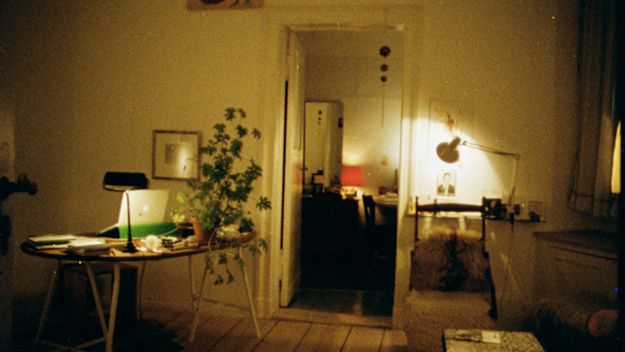First Look 2023: The Sparrow Dream and Other Films
This article appeared in the March 23, 2023 edition of The Film Comment Letter, our free weekly newsletter featuring original film criticism and writing. Sign up for the Letter here.

The Sparrow Dream (Robert Beavers, 2022)
Three critics recommend standouts from this year’s First Look festival, an annual showcase for adventurous new cinema at the Museum of Moving Image in New York City. The 2023 edition wrapped up on March 19.
Last June, a dedicated group of avant-gardists, myself among them, gathered at the Temenos, a plein-air projection space in the Peloponnesian mountains, founded by Gregory Markopoulos and his partner, Robert Beavers. Every four years since 2004, Beavers has hosted partial, sequential screenings of Markopoulos’s 80-hour opus, Eniaios—much of which remains unseen—at the Temenos, which is located near the late filmmaker’s father’s birthplace, Lyssarea.
I was reunited with several Temenos attendees outside a show of Beavers’s own films at First Look last Sunday. For me, it felt like a continuation of our pilgrimage; having been so lovingly introduced to Markopoulos’s sparse, demanding work by Beavers, I approached the latter’s films with duty and curiosity—not to compare, but to complete a picture of one of cinema’s great creative and romantic entanglements. The program included Pitcher of Colored Light (2007), The Suppliant (2010), Listening to the Space in My Room (2013), Among the Eucalyptuses (2017), “Der klang, die welt…” (2018), and the North American premiere of his latest short, The Sparrow Dream (2022), with all films projected on 16mm.
Shot in Berlin and Beavers’s birthplace of Massachusetts over four years, the images in The Sparrow Dream are close, soft, and saturated with color and nature. The director’s gentle voiceover relays poetic insights, while ancient Greek motifs, including a children’s version of The Odyssey, recall a similar obsession in Markopoulos’s films, and underscore the sense of homecoming occasioned by Beavers’s return to Massachusetts. Most of what we see, though, is much more modest than myth. In one breathtaking shot, footage of a woman’s nightgown-clad torso is accompanied by the puckering sound of a kiss; a subsequent shot shows a pair of arms interlocking with the woman’s. One might take these figures to be Beavers and his present companion, filmmaker Ute Aurand, but that hardly matters so much as the eternity of tenderness summoned by the gesture. Throughout each of the films, objects, locations, voices, and actions seem to recur with subtle change. When asked about a perceived shift in the harshness of light in The Sparrow Dream compared to earlier works, Beavers demurred, “I am basically not a conscious filmmaker.” These images, then, are part of the id of a lifetime, daisy-chaining memories, dreams, and desires across continents and decades.
Inney Prakash is a film programmer and critic based in New York City. He is the founder-director of Prismatic Ground, a festival centered on experimental documentary and avant-garde cinema, and recently served as co-director of programming at Maysles Documentary Center in Harlem.







